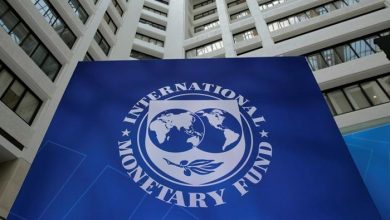SIMPLE GROWTH ‘COTTAGE’ INDUSTRIES WHICH WE HAVE OVERLOOKED

The Institute of Statistical Social and Economic Research (ISSER) – the University of Ghana in partnership with the Brookings Institute, United States, has held a dissemination workshop to present findings on the Ghana Country Case Study on the project “Industries without Smokestacks in Africa”.
The workshop brought together policymakers, researchers, industrialists and civil society organizations to brainstorm and validate the project’s findings.
Objective
The project aims to provide insight into options towards addressing Africa’s Youth Unemployment challenges through the creation of large-scale employment opportunities in “Industries without Smokestacks” in Africa’s industrialization drive.
Specifically, industries without smokestacks are defined as industries that are not recognized as traditional manufacturing, but share similar characteristics – that is, tradable output, ability to absorb a large number of moderate to low skilled workers and provide good wages, in addition to the display of potential for productivity increases to accelerate structural transformation.
These may include beads making, cassava processing, fish smoking and local salt mining and packaging as well as the generation of local tourism infrastructure and construction of sanitary facilities.
While these may not tally nominally into our traditional classification of manufacturing industries in terms of infrastructure, heavy equipment and logistics – with comprehensive export potential, they have growth potential in terms of improving lives and livelihoods.
Capacity
According to the study, a new growth trajectory has emerged in the sub-region, with services as the driver of growth, contrary to the expectations of manufacturing export-led transformation with the capacity to absorb low to medium-skilled workers as previously observed in East Asia and other newly industrialized countries.
The research also indicated that it is imperative for African countries such as Ghana, to redirect attention towards identifying and supporting sectors with more significant employment potential, in the quest to provide decent employment for a rapidly growing population, especially the youth.
De-galamseying the economy
It further acknowledged that the challenge of jobless growth in Ghana has brought to the fore the need to diversify the economy away from mineral dependency through industrial transformation, mindful of the new technological developments.
Also, the report demonstrates that both agro-processing and tourism sectors have several characteristics that make them unique to the situation of Ghana and that includes an improved environment for both sectors and that is supported by various public policies to improve related infrastructure and unearth the potential in the two sectors.
However, some constraints were identified in the agro-processing and tourism sub-sectors.
These include; the lack of adequately skilled labour, lack of access to credit facilities, inadequate infrastructure, cost of electricity, limited capacity to export and restrictive and or cumbersome regulatory environment.
he Institute of Statistical Social and Economic Research (ISSER) – the University of Ghana in partnership with the Brookings Institute, United States, has held a dissemination workshop to present findings on the Ghana Country Case Study on the project “Industries without Smokestacks in Africa”.
The workshop brought together policymakers, researchers, industrialists and civil society organizations to brainstorm and validate the project’s findings.
The project aims to provide insight into options towards addressing Africa’s Youth Unemployment challenges through the creation of large-scale employment opportunities in “Industries without Smokestacks” in Africa’s industrialization drive.
Specifically, industries without smokestacks are defined as industries that are not recognized as traditional manufacturing, but share similar characteristics – that is, tradable output, ability to absorb a large number of moderate to low skilled workers and provide good wages, in addition to the display of potential for productivity increases to accelerate structural transformation.
According to the study, a new growth trajectory has emerged in the region with services as the driver of growth, contrary to the expectations of manufacturing export-led transformation with the capacity to absorb low to medium-skilled workers as previously observed in East Asia and other newly industrialized countries.
The research also indicated that it is imperative for African countries such as Ghana, to redirect attention towards identifying and supporting sectors with more significant employment potential, in the quest to provide decent employment for a rapidly growing population, especially the youth.
It further acknowledged that the challenge of jobless growth in Ghana has brought to the fore the need to diversify the economy away from mineral dependency through industrial transformation, mindful of the new technological developments.
Also, the report demonstrates that both agro-processing and tourism sectors have several characteristics that make them unique to the situation of Ghana and that includes; an improved environment for both sectors and that is supported by various public policies to improve related infrastructure and unearth the potential in the two sectors.
However, some constraints were identified in the agro-processing and tourism sub-sectors.
These include; the lack of adequately skilled labour, lack of access to credit facilities, inadequate infrastructure, cost of electricity, limited capacity to export and restrictive and or cumbersome regulatory environment.
he Institute of Statistical Social and Economic Research (ISSER) – the University of Ghana in partnership with the Brookings Institute, United States, has held a dissemination workshop to present findings on the Ghana Country Case Study on the project “Industries without Smokestacks in Africa”.
The workshop brought together policymakers, researchers, industrialists and civil society organizations to brainstorm and validate the project’s findings.
The project aims to provide insight into options towards addressing Africa’s Youth Unemployment challenges through the creation of large-scale employment opportunities in “Industries without Smokestacks” in Africa’s industrialization drive.
Specifically, industries without smokestacks are defined as industries that are not recognized as traditional manufacturing, but share similar characteristics – that is, tradable output, ability to absorb a large number of moderate to low skilled workers and provide good wages, in addition to the display of potential for productivity increases to accelerate structural transformation.
According to the study, a new growth trajectory has emerged in the region with services as the driver of growth, contrary to the expectations of manufacturing export-led transformation with the capacity to absorb low to medium-skilled workers as previously observed in East Asia and other newly industrialized countries.
The research also indicated that it is imperative for African countries such as Ghana, to redirect attention towards identifying and supporting sectors with more significant employment potential, in the quest to provide decent employment for a rapidly growing population, especially the youth.
It further acknowledged that the challenge of jobless growth in Ghana has brought to the fore the need to diversify the economy away from mineral dependency through industrial transformation, mindful of the new technological developments.
Also, the report demonstrates that both agro-processing and tourism sectors have several characteristics that make them unique to the situation of Ghana and that includes; an improved environment for both sectors and that is supported by various public policies to improve related infrastructure and unearth the potential in the two sectors.
However, some constraints were identified in the agro-processing and tourism sub-sectors.
These include; the lack of adequately skilled labour, lack of access to credit facilities, inadequate infrastructure, cost of electricity, limited capacity to export and restrictive and or cumbersome regulatory environment.
he Institute of Statistical Social and Economic Research (ISSER) – the University of Ghana in partnership with the Brookings Institute, United States, has held a dissemination workshop to present findings on the Ghana Country Case Study on the project “Industries without Smokestacks in Africa”.
The workshop brought together policymakers, researchers, industrialists and civil society organizations to brainstorm and validate the project’s findings.
The project aims to provide insight into options towards addressing Africa’s Youth Unemployment challenges through the creation of large-scale employment opportunities in “Industries without Smokestacks” in Africa’s industrialization drive.
Specifically, industries without smokestacks are defined as industries that are not recognized as traditional manufacturing, but share similar characteristics – that is, tradable output, ability to absorb a large number of moderate to low skilled workers and provide good wages, in addition to the display of potential for productivity increases to accelerate structural transformation.
According to the study, a new growth trajectory has emerged in the region with services as the driver of growth, contrary to the expectations of manufacturing export-led transformation with the capacity to absorb low to medium-skilled workers as previously observed in East Asia and other newly industrialized countries.
The research also indicated that it is imperative for African countries such as Ghana, to redirect attention towards identifying and supporting sectors with more significant employment potential, in the quest to provide decent employment for a rapidly growing population, especially the youth.
It further acknowledged that the challenge of jobless growth in Ghana has brought to the fore the need to diversify the economy away from mineral dependency through industrial transformation, mindful of the new technological developments.
Also, the report demonstrates that both agro-processing and tourism sectors have several characteristics that make them unique to the situation of Ghana and that includes; an improved environment for both sectors and that is supported by various public policies to improve related infrastructure and unearth the potential in the two sectors.
However, some constraints were identified in the agro-processing and tourism sub-sectors.
These include; the lack of adequately skilled labour, lack of access to credit facilities, inadequate infrastructure, cost of electricity, limited capacity to export and restrictive and or cumbersome regulatory environment.
Source: myjoyonline









